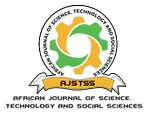A systematic review of predictive blood donor retention models.
DOI:
https://doi.org/10.58506/ajstss.v2i2.206Keywords:
blood donor retention, machine learning, predictive model, healthcare, blood donation, prediction.Abstract
Demand for blood and blood products is increasing due to population growth, medical advances, and increased disease. Availability of a stable blood supply is critical for healthcare organizations and requires effective donor recruitment and retention strategies. This systematic review paper examines the development and implementation of predictive models using machine learning techniques to classify and predict blood donor retention rates. The aim is to analyze the existing literature and provide insights into the design, performance and potential of such models through a systematic search of relevant databases. The reviewed studies include a variety of machine learning approaches and algorithms used to predict blood donor retention rates. These models use various demographic, behavioral, and historical donation data to predict the likelihood of a donor returning to donate blood. The utilization of machine learning techniques, such as decision trees, logistic regression, support vector machines, and neural networks, enables accurate predictions and enable healthcare organizations to implement targeted donor retention interventions to increase blood supply. The models' predictive performance reveals their capacity to recognize donors who are not likely to return and donate blood and target retention strategies appropriately, improving donor engagement and fostering long-term commitment. Several challenges and limitations face the identified existing models. They include the need for comprehensive and high-quality data, interpretability of complex models as well as the requirement for regular model updates to accommodate changing donor behaviors. There is need for development of versatile and comprehensive models with improved accuracy that can reduce the need for constant recruitment of new donors, which is costly and time-consuming enabling blood agencies to accurately predict donor retention rates, inform donor retention strategies, and prioritize resources appropriately and ultimately saving lives.


